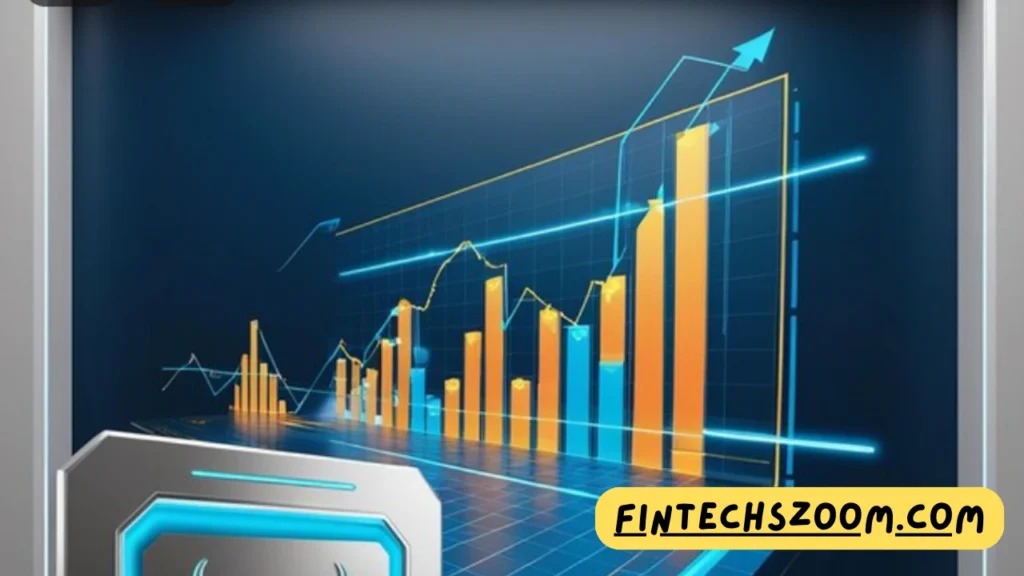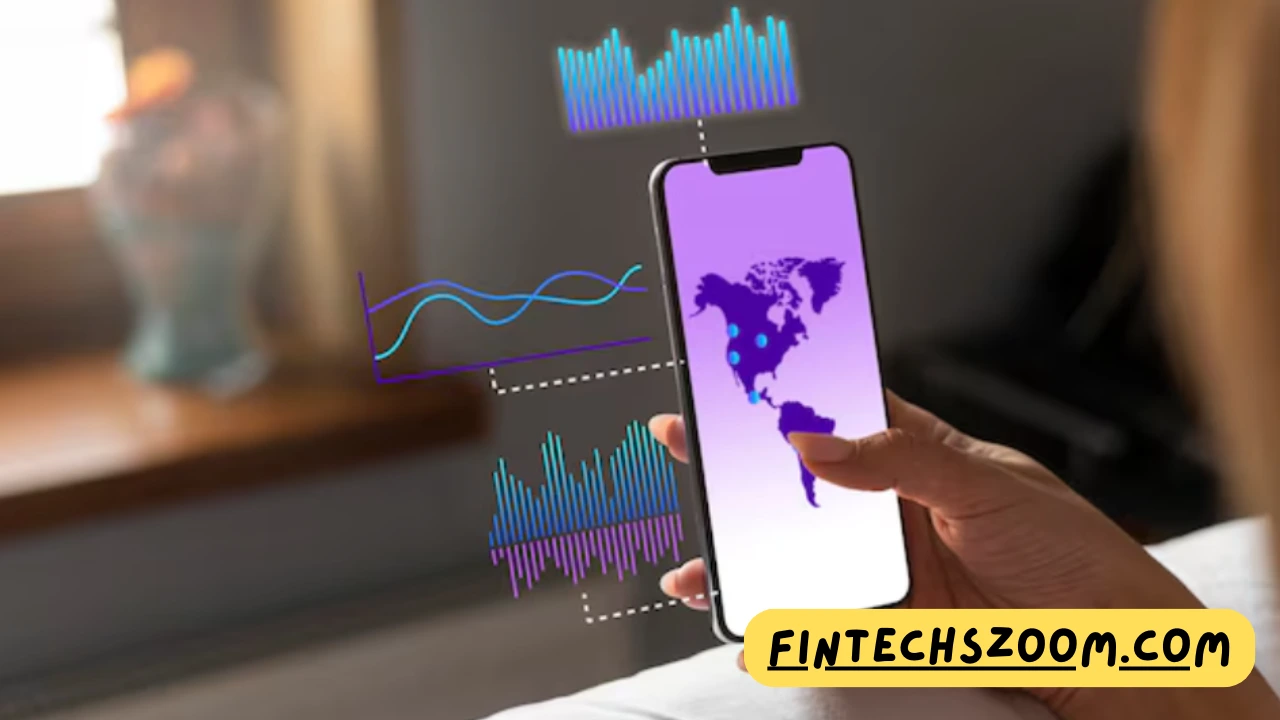In today’s dynamic financial landscape, stock futures play a vital role for investors and dealers seeking to explore the complexities of the market. FintechZoom offers a comprehensive platform that gives real-time experiences and investigation of stock futures, empowering customers to make informed decisions.
Stock futures are contracts that allow investors to buy or sell an asset at a fixed cost at a future date, making them fundamental for support and speculation. By leveraging FintechZoom’s expert scope, dealers can stay updated on market trends, key indicators, and potential opportunities, progressing their investment techniques and generally financial success.
Why Use FintechZoom for Stock Futures?
Due to its comprehensive scope and real-time data, FintechZoom is an essential resource for stock futures trading. The platform offers complete market analysis, expert experiences, and historical information that help dealers make informed decisions.
With user-friendly tools and up-to-date information on market trends, FintechZoom helps investors recognize opportunities, manage risks successfully, and stay ahead in the fast-paced world of stock futures.
Key Features
Key Features of FintechZoom Stock Futures are as Follows:
- Leverage: Control prominent positions with smaller capital investments.
- Standardization: Contracts indicate the quantity and quality of assets.
- Expiration Dates: Contracts must settle on particular expiration dates.
- Margin Requirements: Stores serve as collateral for trading positions.
- Liquidity: High liquidity permits simple entry and exit.
- Supporting and Speculation: Protect against price changes or benefit from developments.
- Market Transparency: Regulated markets give real-time pricing information.
Stock Futures: Daily vs Weekly Predictions
Here is a table comparing Daily vs Weekly Stock Futures Predictions on FintechZoom:
| Aspect | Daily Stock Futures Predictions | Weekly Stock Futures Predictions |
|---|---|---|
| Time Frame | Focuses on the short-term, covering 24 hours | Covers a broader outlook over a 7-day period |
| Volatility | Typically higher, as it reflects daily market changes | Lower volatility due to a longer time horizon |
| Influencing Factors | Daily news, economic reports, earnings announcements | Broader economic trends, long-term reports, geopolitical events |
| Target Audience | Day traders, short-term investors | Long-term investors, swing traders |
| Risk Level | Higher risk due to rapid market fluctuations | Moderate risk with a balanced outlook over the week |
| Market Impact | Sensitive to intraday news and market sentiment | Incorporates weekly data and averages out daily fluctuations |
| Data Sources | Daily stock movements, opening/closing prices, news reports | Weekly analysis, moving averages, and macroeconomic indicators |
| Prediction Accuracy | Short-term accuracy, but prone to sharp shifts | More stable, reflecting longer-term market trends |
| Analysis Frequency | Updated multiple times per day | Typically updated once a week |
| Trading Strategies | Focuses on quick gains, frequent trades | Supports swing trading, position trading |
| Advantages | Captures immediate opportunities, fast reactions | Provides a broader perspective, reduces noise from daily volatility |
| Disadvantages | Prone to overreaction, hard to predict over a day | Slower to capture rapid market shifts |
Different Types of Stock Futures
Here are the Different Types of Stock Futures:
Individual Stock Futures
Contracts are based on specific stocks, allowing dealers to speculate or support individual companies.
Index Futures
Futures commitments connected to a stock market index, such as the S&P 500 or NASDAQ, allow dealers to bet on overall market developments.
Mini-Futures
Smaller-sized futures contracts that require lower capital, making them available for individual investors.
E-mini Futures
A popular subset of mini futures, these contracts are based on significant lists and offer improved liquidity.
Sector Futures
Contracts tied to particular sectors, like technology or healthcare, permit dealers to focus on industry trends.
Options on Futures
The agreement gives the buyer the right, but not the commitment, to buy or sell futures at a particular price.
Synthetic Futures
It was created by combining options and stock positions to replicate trading techniques without direct futures contracts.
Best Strategies for Trading Stock Futures Successfully

Here are Some of the best Techniques for Trading Stock Futures Successfully:
Market Analysis
Conduct thorough technical and principal analysis to identify trends and make informed decisions.
Risk Management
Set stop-loss orders to minimize potential losses and ensure your trading capital.
Leverage Wisely
Use leverage carefully to maximize returns while managing your risk introduction successfully.
Develop a Trading Plan
Create a clear plan with particular entry and exit techniques custom-made to your trading goals.
Stay Disciplined
Stick to your strategy and avoid making emotional trading decisions based on market changes.
Benefits
Here’s the Benefits of FintechZoom Stock Futures:
Real-Time Data
FintechZoom provides livestock futures prices, permitting dealers to remain updated on market developments and make timely investment decisions.
Comprehensive Investigation
The platform offers expert commentary and analysis, helping customers understand market trends and develop informed techniques for trading stock futures.
User-Friendly Interface
FintechZoom’s natural tools and easy-to-navigate platform empower dealers of all levels to track and trade stock futures efficiently and confidently.
Risk Management Support
By offering experiences in market instability and trends, FintechZoom helps investors manage risks and support against potential losses in stock futures trading.
Risks
Here’s the Risks of FintechZoom Stock Futures:
Market Instability
Stock futures can be highly volatile, and sudden market swings may result in significant losses if trades move against your position.
Leverage Risk
While leverage amplifies potential gains, it also increases losses, meaning dealers can lose more than their beginning investment if the market turns unfavorable.
Margin Calls
If the value of your futures position drops, you’ll face margin calls, requiring extra reserves to preserve your position or risk liquidation.
Limited Timeframe
Stock futures have expiration dates, which can lead to forced settlements at unfavorable prices if market conditions don’t improve in time.
Key Terms You Need to Know in Stock Futures

Here are Some Key Terms You Need to Know in Stock Futures:
- Futures Contract: Agreement to buy or sell an asset.
- Margin: Required collateral to open and maintain positions.
- Leverage: Control prominent positions with small capital investments.
- Close Date: Date when the futures contract settles or expires.
- Long Position: Trader expects the asset’s price to rise.
- Short Position: Trader expects the asset’s cost to fall.
- Settlement: Closing a contract through cash or delivery.
- Supporting: Protecting against losses by offsetting positions.
- Open Interest: The total outstanding contracts are not yet settled.
- Liquidity: Ease of buying or selling without influencing prices.
Top Stock
Here’s the Top Stock Futures to Watch On FintechZoom:
S&P 500 Futures
Tracks the top 500 U.S. companies, giving dealers a broad market introduction and high liquidity.
NASDAQ 100 Futures
It focuses on major technology companies like Apple, Microsoft, and Amazon, offering an understanding of tech sector developments.
Dow Jones Futures
Covers 30 leading excellent companies, reflecting the health of the U.S. economy.
Russell 2000 Futures
Reflects small-cap U.S. companies, allowing dealers to investigate development stocks and developing markets.
DAX 40 Futures
Tracks the largest companies in Germany, offering exposure to Europe’s most robust economy.
Top Strategies for Trading
Here’s the Top Techniques for Trading Stock Futures On FintechZoom:
Trend Following
Trade in the direction of long-term trends utilizing FintechZoom’s real-time data.
Swing Trading
Utilize FintechZoom’s tools to capitalize on short- and medium-term cost changes.
Supporting
Protect your portfolio from losses by supporting with stock futures on FintechZoom.
Scalping
Make quick trades based on small cost changes utilizing FintechZoom’s quick market updates.
Arbitrage
Spot and exploit price differences between futures and underlying assets with FintechZoom experiences.
Role in Global Stock Futures Markets

FintechZoom gives critical support in worldwide stock futures markets by offering real-time data, expert experiences, and a comprehensive scope of key international indices. Dealers can monitor market trends, analyze historical data, and receive specialist commentary on worldwide financial developments.
By making essential tools and data accessible, FintechZoom empowers traders to create informed decisions, improve transparency, and empower successful support in the fast-paced world of stock futures trading.
Stock Futures vs Regular Stocks
Here is a table comparing Stock Futures vs Regular Stocks:
| Aspect | Stock Futures | Regular Stocks |
|---|---|---|
| Definition | Contract to buy or sell a stock at a future date and price | Ownership of shares in a company |
| Ownership | There is no leverage; you pay full price per share | Ownership of a portion of the company |
| Leverage | High leverage; you can control large positions with a smaller investment | No leverage; you pay full price per share |
| Time Frame | Has a defined expiration date (usually monthly or quarterly) | No expiration; can hold indefinitely |
| Risk Level | Higher risk due to leverage and market volatility | Lower risk compared to futures, depending on the stock |
| Investment Strategy | Used for speculation, hedging, or short-term trading | Long-term investing or short-term trading |
| Market Access | Traded on futures exchanges | Traded on stock exchanges like NYSE, NASDAQ |
| Initial Investment | Requires a margin deposit, typically lower than the total value of the contract | Requires full payment for the number of shares you buy |
| Profit Potential | Higher potential for profit (and loss) due to leverage | Profit depends on stock price appreciation and dividends |
| Regulation | Heavily regulated, often requiring specialized accounts | Regulated by stock market authorities |
| Dividends | No dividend payments | Shareholders may receive dividends |
| Market Hours | 24-hour access for the future (with certain exceptions) | Limited to regular market hours, but after-hours trading is possible |
| Price Fluctuation | Based on anticipated future stock prices | Directly affected by current stock market price |
| Trading Complexity | More complex; requires an understanding of futures contracts and margin requirements | Easier to understand for average investors |
Tips for Successful Stock Future Trading
Here’s the Tips for Successful Stock Futures Trading:
- Educate Yourself: Understand stock futures and market dynamics completely.
- Develop a Trading Plan: Clearly outline goals, risk resistance, and techniques.
- Utilize Risk Management: Implement stop-loss orders to protect your capital.
- Stay Informed: Monitor market news and financial indicators frequently.
- Practice with Simulations: Utilize demo accounts to refine trading techniques.
- Be Patient and Disciplined: Avoid emotional decisions; follow your trading plan.
- Review and Adjust: Analyze trades and improve techniques regularly.
Why Stock Futures Matter for Investors?
Stock futures are essential for investors as they provide opportunities for both support and speculation. By permitting dealers to lock in stock prices at a future date, they help manage risk related to market changes.
Stock futures also improve liquidity in the market, empowering investors to enter and exit positions rapidly. Additionally, they offer leverage, permitting investors to control more prominent positions with a smaller capital investment, increasing potential returns.
How To Stay Updated?
To remain updated on stock futures utilizing FintechZoom, follow these steps:
- Access Real-Time Data: Check live stock futures prices regularly.
- Utilize Market Analysis: Read expert commentary for market experiences and trends.
- Set Alarms: Receive notifications for significant price developments.
- Monitor Financial News: Remain updated on financial indicators affecting futures.
- Engage with Interactive Tools: Utilize charts and tools to track price patterns.
A Step-by-Step Guide
A Step-by-Step Guide to Stock Futures Trading on FintechZoom is as Follow:
- Create an Account: Sign up for a FintechZoom trading account.
- Deposit Funds: Fund your account using your preferred payment method.
- Research Markets: Analyze stock futures, trends, and financial indicators thoroughly.
- Develop a Trading Technique: Outline your goals, risk tolerance, and techniques.
- Select Stock Futures: Select particular stock futures contracts to trade.
- Place Your Order: Enter quantity and order type to execute.
- Monitor Your Position: Track open positions using real-time data regularly.
- Set Stop-Loss Orders: Tool stop-loss orders to limit potential losses.
- Review and Analyze Trades: Assess closed positions to learn from experiences.
- Stay Informed: Monitor market news and updates for conforms.
How do you leverage FintechZoom tools?
Here’s the Guide to How to Leverage FintechZoom Tools for Stock Futures Trading:
- Utilize Market Data: Access real-time data for informed trading decisions.
- Analyze Charts: Identify trends and patterns utilizing progressed charting tools.
- Read Expert Analysis: Gain experiences from expert commentary and analysis.
- Set Price Alerts: Create alerts for significant stock futures price developments.
- Explore Financial Calendars: Monitor upcoming occasions affecting stock futures markets.
- Utilize Educational Resources: Improve knowledge with tutorials and informative articles.
- Engage in Community Discussions: Exchange ideas with other traders in forums.
- Track Historical Data: Analyze past performance to inform future techniques.
How to Start Trading Stock Futures
Here’s a Brief Guide on How to Start Trading Stock Futures:
- Educate Yourself: Learn about stock futures and trading techniques.
- Choose a Broker: Select a dependable brokerage offering futures trading.
- Open an Account: Complete the application process and fund your account.
- Understand Margin Requirements: Familiarize yourself with margin rules and leverage.
- Create a Trading Plan: Create a technique with precise entry and exit points.
- Use a Demo Account: Practice trading with virtual funds to build confidence.
- Monitor Market Conditions: Remain informed about market trends and financial news.
- Start Trading: Begin trading stock futures with small positions initially.
What Happens When Stock Futures Expire?
When stock futures expire, the contract is settled based on the price of the essential asset. If the futures are cash-settled, the difference between the contract and market costs is paid in cash.
The basic asset is conveyed to the buyer at the agreed price for physically settled futures. Dealers must close or roll over open positions before closing to avoid forced settlement or unexpected losses.
Critical Factors Affecting Stocks
Critical Factors Affecting Stock Futures Prices are as Follows:
Market Opinion
Investor perceptions and feelings, affected by the news, significantly affect stock futures prices daily.
Financial Indicators
Reports on employment, expansion, and GDP shape future expectations and impact stock futures.
Interest Rates
Changes in interest rates affect borrowing costs and investment returns, impacting futures prices.
Geopolitical Events
Political instability and international conflicts create instability and can lead to price instability.
Supply and Demand
Higher demand for futures contracts generally raises prices, whereas oversupply tends to lower them.
Common Mistakes to Avoid
A few common mistakes can lead to financial losses when trading stock futures. Failing to conduct thorough market research can result in uninformed decisions. Ignoring risk management practices, such as stop-loss orders, increases the potential for significant misfortunes.
Overleveraging can amplify gains and losses, while emotional trading based on fear or greed can disturb techniques. Also, ignoring market trends, trading without a clear plan, and failing to keep accurate records can hinder performance and prevent dealers from learning from their mistakes.
Expert Predictions
Expert predictions for FintechZoom stock futures indicate a cautious yet hopeful outlook, affected by current market trends and financial indicators. Analysts expect instability in the near term due to geopolitical events and expansion concerns, which may affect trading techniques.
However, many experts accept that strong corporate earnings and financial recovery may support upward development in stock futures. Overall, remaining informed and adaptable will be significant for investors as they navigate the evolving market landscape and leverage FintechZoom’s assets for convenient experiences and analysis.
Conclusion
FintechZoom Stock Futures gives a comprehensive platform for real-time data, expert investigation, and trading tools, helping investors make informed decisions within the fast-paced world of stock futures. It offers experiences in distinctive futures, including individual stocks, lists, and sectors.
Critical features like leverage, margin requirements, and liquidity make it an effective tool for supporting and speculation. However, it also involves risks such as market instability and leverage exposure.
Overall, FintechZoom is an essential resource for effectively managing stock futures. It offers timely updates, risk management support, and opportunities for improved investment techniques.
FAQs
What are stock futures?
Stock futures are contracts to buy or sell an asset at a set cost on a future date.
Why utilize FintechZoom for stock futures trading?
FintechZoom offers real-time data, expert investigation, and user-friendly tools for informed trading.
What are the types of stock futures?
Types incorporate individual stock futures, index futures, mini futures, e-mini futures, and sector futures.
What are the benefits of trading stock futures on FintechZoom?
Benefits incorporate real-time data, master investigation, a user-friendly interface, and risk management tools.
What are the risks of trading stock futures?
Risks incorporate market insecurity, leverage introduction, margin calls, and limited timeframes.
How can I remain updated on stock futures utilizing FintechZoom?
Utilize real-time data, market investigation, set alerts, and track financial news.
Can beginners trade stock futures on FintechZoom?
Yes, FintechZoom’s user-friendly tools and educational resources make it available for beginners.
What are a few top stock futures to watch?
Popular futures include S&P 500, NASDAQ 100, Dow Jones, and DAX 40.
What techniques can be utilized for stock futures trading on FintechZoom?
Standard techniques include trend following, swing trading, supporting, and scalping.
What happens when stock futures expire?
Contracts are settled based on the primary asset’s price, either in cash or through asset delivery.
Paul Jeff is a passionate writer From Charlotte, North Carolina. He Loves to write on FintechZoom, Marketing Stocks and it’s future prospective.

